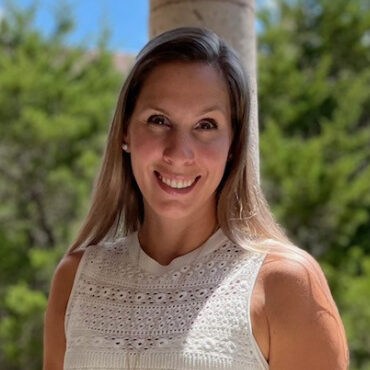Master’s in Counselor Education
Department of Educational Psychology
Ranked highly by U.S. News & World Report, the Counselor Education master’s degree (M.Ed.) program involves the rigorous study of psychology and counseling to meet the increasing demand for counselors in educational, health and community settings. Graduates of our program have gone on to:
- Pursue employment in higher education as advisers and career counselors
- Pursue doctoral studies in counseling or related fields.
- Pursue certification as a Licensed Professional Counselor (LPC). Learn more about the requirements to become an LPC on the Texas State Board’s website.
Our students and faculty work together in a learning community dedicated to advancing the field of counseling by adhering to the professional and ethical standards promoted by the American Counseling Association. We foster the belief that learning continues beyond graduation through participation in professional organizations.
Upcoming Information Sessions
Admissions
All prospective students must apply via the Graduate School by January 10. Counselor Education typically invites candidates for online interviews in mid-February to early March.
Selection of admitted students is based on multiple factors including undergraduate grades, letters of recommendation, personal statement, match between student goals and program goals and intellectual curiosity.
Coursework
Required coursework for previous and subsequent years may vary. Current students should always consult their Program of Work for course requirements and consult with their faculty advisor or Graduate Advisor for any needed clarifications.
This is a full-time rigorous academic program that prepares students for professional practice. Many of our students work part-time, but full-time work during the time of enrollment is likely to interfere with the successful completion of the program.
Students should expect the program to take two years of full-time coursework, including at least one full summer semester (six to nine hours).
Core Counseling Coursework (42 credit hours)
- EDP 383C.12 Assessment in Counseling
- EDP 384C.2 Theories in Counseling
- EDP 385C.5 Professional Orientation & Ethics in Counseling
- EDP 385C.6 Advanced Ethics & Professional Issues in Counseling
- EDP 384C.8 Helping and Counseling Skills
- EDP 384D Group Counseling
- EDP 381C.4 Research Methodology for Practitioners
- EDP 384C.18 Multicultural Counseling
- EDP 382F.12 Dysfunction in Human Behavior and Social Organizations
- EDP 384C.6 Career Development
- EDP 382F.3 Life Span Development
- EDP 383C.30 Developmental Psychopathology
- EDP 384C Family & Couples Interventions
- EDP 384C.14 Addiction Counseling
Supporting Coursework (9 credit hours)
Supporting coursework includes EDP 385C.12 Seminar in Higher Education plus two additional courses related to professional counseling.
Practica and Internship (9 credit hours)
- EDP 384Q Practicum in Counseling
- EDP 394E Internship in Counseling (2 semesters, for a minimum of 6 credit hours)
Students are commonly placed in university and community settings.
Program Goals
As counselor educators, we are committed to providing graduates with knowledge necessary to provide effective, evidence-based prevention and intervention services in academic settings in a diverse society. Our curriculum addresses the following components:
- Developing a professional identity as a counselor and knowledge of the ethical mandates of the profession.
- Developing the awareness, knowledge and skills essential for competence in multicultural counseling and program development in educational settings.
- Utilizing a developmental perspective for applying evidence-based prevention and intervention programs on campuses.
- Applying models of career assessment and development to ensure a link between the world of school and the world of work.
- Understanding models of helping skills at multiple levels on a campus including wellness and prevention programming, counseling and consultation.
- Developing group counseling skills to facilitate groups in the promotion of student success and social-emotional learning.
- Understanding assessment principles to select, administer and interpret appropriate assessment strategies on campuses, as well as to interact with assessment professionals in the community.
- Understanding principles guiding research and program evaluation in counselor education to enhance their ability to provide evidence-based services in schools and institutions of higher education.
Training Goals
Our program prepares students for licensure as a professional counselor in the state of Texas. While our program aligns with generally accepted national standards for counselor training, we are not accredited by CACREP. Students planning on working in another state after graduation should carefully review that state’s requirements before accepting admission. The National Board for Certified Counselors, Inc. and Affiliates (NBCC) maintains a list of licensing boards that students should consult.
As counselor educators, we place a high priority on the development of multicultural competence in our faculty and students. We stress the importance of developing personal awareness of one’s own culture and one’s biases which may stem from experiences in a society that has perpetuated inequities based on group membership.
We, therefore, provide training, experiences and practice that help all members of our learning community develop knowledge and skills to provide counseling that meets the needs of all of our clients. We support the American Counseling Association Ethics Code that states, “Counselors do not condone or engage in discrimination based on age, color, culture, disability, ethnic group, gender, race, religion, sexual orientation, marital status, or socioeconomic status” (ACA Ethics Code, A.2).
We recognize that becoming multiculturally competent is a life-long process and encourage our faculty and students to maintain a focus on cultural competence throughout their careers. We promote a commitment to addressing inequities within our educational settings and the educational systems in which our graduates will be working.
Faculty

Explores the intersection of psychology and culture through such topics as the psychological experience of immigration, ethnic conflicts and the impact of violence within communities, and the relationship between individual and collective identity. ...
Accepting new students

Research interests include mental health public policy, college student mental health and suicide prevention, collaborative care models of behavioral health in primary care, and the intersection of mental health and academic success.
Accepting new students


My Coping and Stress in Education Lab conducts research at the intersection of health, psychology, and education. The focus of our work generally is on promoting wellness and optimal functioning in educational settings. Current work includes studie...
Accepting new students


Focuses on suicide prevention, healthcare access, mental health service use, and aging
Accepting new students
Research Opportunities and Additional Information
While Counselor Education students are not required to participate in research for this program, students interested in doing so are strongly encouraged to talk with faculty about their scholarship and possible ways to participate in research activities. Students interested in further graduate work at the doctoral level are welcome to apply for the doctoral program in Counseling Psychology in our Department once they finish the M.Ed.; however, this is also a highly competitive program requiring a separate application.
Also see:
Program Starts: Fall, Summer
Deadline to Apply: January 10
Length of Program: 2 years
Schedule: Full-time strongly encouraged
Program Location: On Campus
GRE Required? No

Program Director
Arna Erega
Let us know what your academic interests are within the College of Education and we’ll be in touch.



